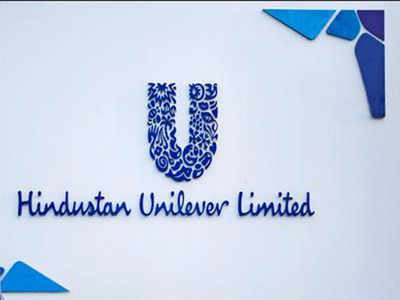- News
- Business News
- India Business News
- HUL sets up wholly owned manufacturing subsidiary
Trending
This story is from February 25, 2020
HUL sets up wholly owned manufacturing subsidiary
Hindustan Unilever (HUL) is perhaps the first large company to take advantage of the lower corporate tax by announcing setting up of a 100% subsidiary for greenfield manufacturing.

(File photo)
MUMBAI: Hindustan Unilever (HUL) is perhaps the first large company to take advantage of the lower corporate tax by announcing setting up of a 100% subsidiary for greenfield manufacturing. The FMCG major on Monday said its board of directors approved a proposal to form a 100% subsidiary to help the company “become more agile and customer-focused”.
The government had slashed the corporate tax rate from 30% to 22%, and for new manufacturing entities the corporate tax rate was brought down to 15%.HUL, which is a market leader in several FMCG categories, falls under the 22% corporate tax bracket. Any new manufacturing undertaken by HUL would be taxed at this rate.
However, new manufacturing units set up by the wholly owned subsidiary, which is yet to be named, would attract a lower tax rate of 15%. The company has a window to set up manufacturing units under the new subsidiary before March 2023.
HUL CFO Srinivas Phatak told TOI, “The move is in alignment with the government’s ‘Make in India’ initiative and it will also create new employment. We will explore all possibilities in manufacturing under the new subsidiary. It could also mean that some of the products that are currently imported, could be manufactured locally.”
Other manufacturing companies may follow the example of HUL. Tax and corporate law advocate Mohamed Nawaz Haindaday said, “Under the new corporate tax regime, a company opting for the tax rate of 15% can look forward to improving its margins or profitability at the cost of forsaking the carry forward of unutilised depreciation and set off losses. Such corporates would lose on the MAT (minimum alternate tax) credits which they would have otherwise paid and accumulated under the higher tax rate regime.”
HUL has 28 manufacturing units across India. The Rs 38,000-crore company employs about 18,000 people. According to the company’s annual report for 2018-19, HUL has 10 wholly owned subsidiaries and one in which HUL has 80% ownership.
The government had slashed the corporate tax rate from 30% to 22%, and for new manufacturing entities the corporate tax rate was brought down to 15%.HUL, which is a market leader in several FMCG categories, falls under the 22% corporate tax bracket. Any new manufacturing undertaken by HUL would be taxed at this rate.
However, new manufacturing units set up by the wholly owned subsidiary, which is yet to be named, would attract a lower tax rate of 15%. The company has a window to set up manufacturing units under the new subsidiary before March 2023.
HUL CFO Srinivas Phatak told TOI, “The move is in alignment with the government’s ‘Make in India’ initiative and it will also create new employment. We will explore all possibilities in manufacturing under the new subsidiary. It could also mean that some of the products that are currently imported, could be manufactured locally.”
The new subsidiary will have an authorised share capital of Rs 2,000 crore. It is expected to become operational in 12-18 months. An initial investment of Rs 500-800 crore is expected to go into setting up FMCG manufacturing units under the new entity. “The law on the new tax regime is clear and there is a thrust on investments,” said Phatak.
Other manufacturing companies may follow the example of HUL. Tax and corporate law advocate Mohamed Nawaz Haindaday said, “Under the new corporate tax regime, a company opting for the tax rate of 15% can look forward to improving its margins or profitability at the cost of forsaking the carry forward of unutilised depreciation and set off losses. Such corporates would lose on the MAT (minimum alternate tax) credits which they would have otherwise paid and accumulated under the higher tax rate regime.”
HUL has 28 manufacturing units across India. The Rs 38,000-crore company employs about 18,000 people. According to the company’s annual report for 2018-19, HUL has 10 wholly owned subsidiaries and one in which HUL has 80% ownership.
End of Article
FOLLOW US ON SOCIAL MEDIA















